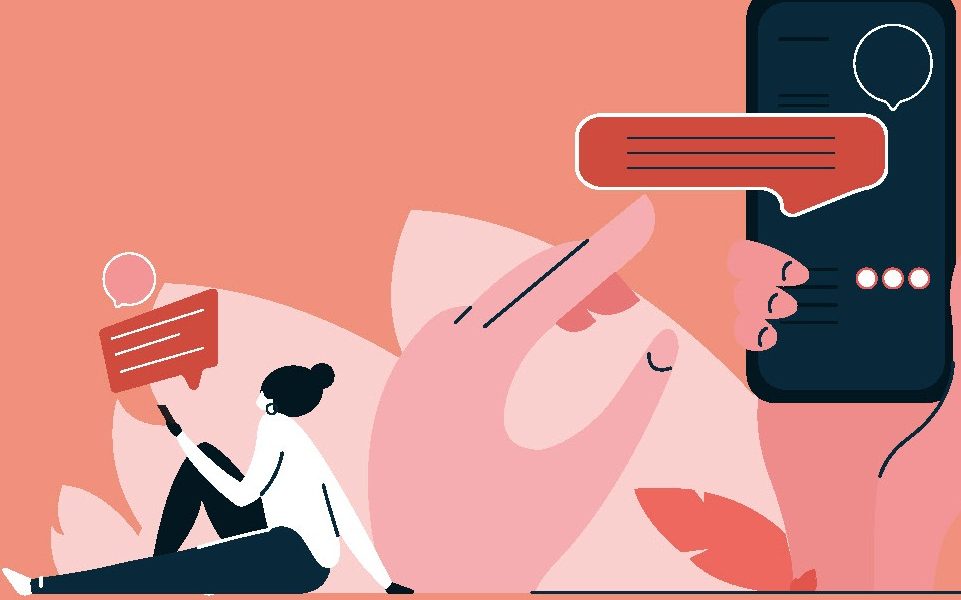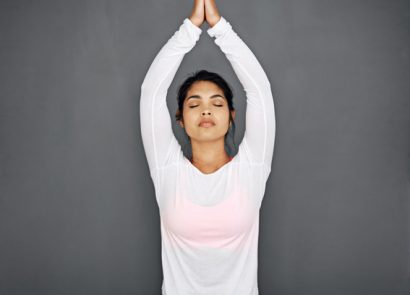Clocking up hours behind that phone or laptop can mean our skin and brain health is suffering. Here’s what really goes on and what you can do about it
Mess with your head
Screen time gets a pretty bad rep. Not only does hunching over laptops and computers give our backs grief, it’s now being blamed for causing problems for our skin and potentially damaging our brains, too. No one could have prepared us for how much we’d be relying on our devices following the events of 2020, but as workouts took place on Instagram live and work meetings and social gatherings over Zoom, we’re slowly becoming accustomed to this as our new means of communicating. New research, conducted by Vision Direct, found that 64 percent of people surveyed admitted they wouldn’t know what to do without their screens, especially during the Coronavirus pandemic, and it’s no wonder. So, with the hours that we spend behind one mounting up, what can that mean for us? “Research indicates that the more adults focus on screens, the greater the likelihood of eye strain, eye fatigue, myopia or nearsightedness, disrupted sleep and headaches,” says Dr Aria, high performance psychologist and author of A Mindful Year (dr-aria.com). And unfortunately, there’s plenty more bad news where that came from. Having the temptation to pick up your phone and have a scroll through that social media app can also mean structural and functional changes are occurring in areas of the brain that process emotions, attention and decision making, he warns.
Skin deep
You know that UVA and UVB rays from the sun can cause damage to your skin, but what about the effects of blue light? It’s a new one we need to start protecting ourselves against. “When your skin is exposed to blue light, an influx of harmful free radicals are released, causing oxidative stress to the skin. The free radicals break down and damage the collagen and elasticity in the skin which, in turn, increases the signs of ageing in the skin, as well as inflammation,” explains aesthetic doctor, Dr Rita Rakus (drritarakus.co.uk). Think you can forget about that daily application of SPF just because we’re staying inside more at the moment? Wrong. SPF is what’s going to protect your skin from the high energy visible light (HEV). “When working from home, and in general, it’s always important to wear SPF to protect your skin from all types of harmful light rays,” says Dr Rakus. “A broad-spectrum mineral-based sunscreen with an SPF30 is helpful in protecting the skin and vitamin A (AKA retinoids) are also known to aid with repairing blue light skin damage by boosting elasticity and collagen in the skin, improving texture and eliminating unwanted pigmentation.” For more blue light defence, flick back to page seven to find a range of products to help combat the effects.
Digital detox
OK, let’s talk more solutions. A long break away from your phone is something your friend has probably been talking about for some time now and has left you running out of reasons why you shouldn’t. Too extreme for you? Dr Aria suggests the 20-20-20 principle. “It’s simple,” he explains. “For every 20 minutes of screen time, look away at something that’s 20 feet away for at least 20 seconds. Attempting to avoid screen use for 24 hours may not appear feasible, so the key is to start small. Have screen-free meals and focus on each bite of your food, leave your phone at home when you go for a walk or begin to use an old-fashioned alarm clock and charge your mobile in another room. You’ll soon start to notice differences to your mind, emotions and body.”






















